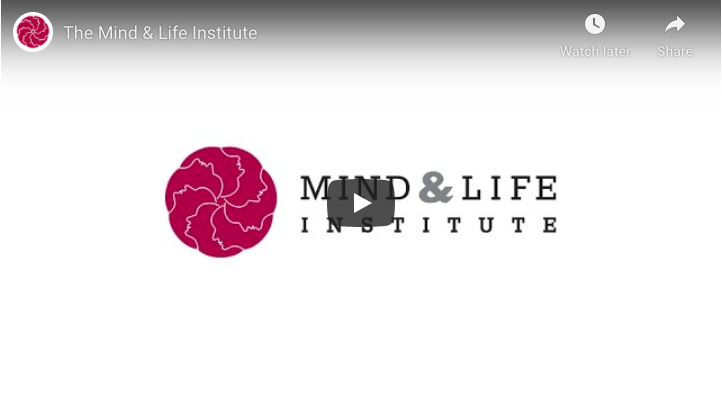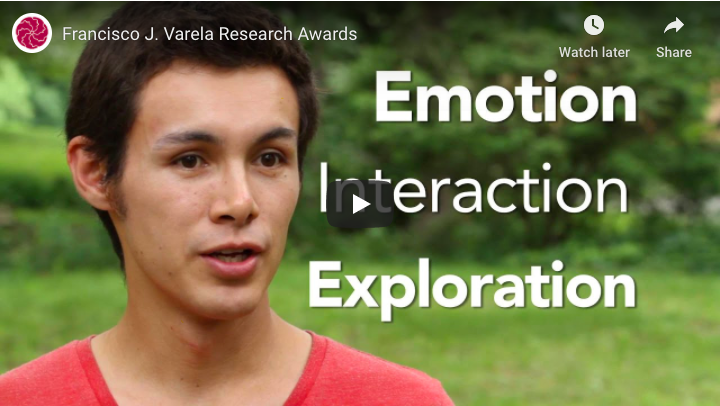Topic Archives:
Francisco J. Varela Research Awards
Neuroscientist, philosopher, and Mind and Life co-founder Francisco Varela (1946-2001) believed that contemplative training offers modern science novel methods for investigating the depth of human experience. In his vision, contemplative training such as meditation not only provides a new domain for scientific study, but it also offers resources for advancing scientific models of consciousness, emotion, …
The Contemplative Development Mapping Project: A new model for interdisciplinary investigation
This past winter, it was my honor and pleasure to participate in a Mind & Life Research Workshop convened by the Contemplative Development Mapping Project (CDMP). The CDMP is a group of scholars, scientists, and practitioners who are personally and professionally committed to enriching our understanding of contemplative practices and experiences. This interdisciplinary “think tank” …
A Perfect Storm of Healing: Psychological, Zen, and Christian Perspectives
Fear is essentially isolating, separating us from our inner wisdom and from the world around us. Trust invites us to experience the vast, creative and compassionate territory of our minds and hearts. Three traditions of enlightenment and healing help us to understand the dynamics of fear and trust. Relational psychotherapy suggests that the seeds of …
Continue reading “A Perfect Storm of Healing: Psychological, Zen, and Christian Perspectives”
Fostering Communities of Care: Toward an Ecological Approach to the Development and Implementation of Contemplative-Based Programs
Fostering compassion and trust among individuals and groups is key to the success and sustainability of communities of care. A number of mindfulness and compassion-based contemplative interventions offer methods for enhancing connection, empathy, and care, yet these approaches too often focus on the development of intra rather than interpersonal skills. This is due in part …
Meditation on Fearlessness
This session will begin with a brief guided meditation to experientially introduce themes from Christian contemplative practice. Neither experience nor a Christian background are necessary. Discussion of the multi-dimensional quality of mind and ways in which it can be released from the tyranny of fear and anxiety will follow. Comparison with Buddhism and other religious …
Fear and Fearlessness in Contemplative Christianity
The Didache (1st century) describes Christianity as a “way of life” in which the “fleshly and bodily lusts” of fear and hatred are transformed into compassionate love. This theme was revisited by John of the Cross who composed love poetry to God in a tiny prison cell from which he was regularly taken for ritual …
Continue reading “Fear and Fearlessness in Contemplative Christianity”
Attachment Theory and Attachment Security in Relation to Buddhist Non-Attachment
The ideal mental state, or stance, according to attachment theory and research is secure attachment or attachment security. The ideal state, or stance, according to Buddhism has been often been described as non-attachment. I will present some ideas and measures, including measures of attachment anxiety and avoidance, mindfulness, and non-attachment, in hopes of sparking theoretical …
Continue reading “Attachment Theory and Attachment Security in Relation to Buddhist Non-Attachment”
Devotion as a Doorway to Existential Trust: Rethinking Devotion in Light of Attachment Theory
According to current theory in social psychology, secure attachments are accompanied by a secure-base script. This script includes an assumption that there are people one can turn to for support, an assumption others can be trusted to give support and a recognition that you will be comforted by the support you receive. Interestingly, the devotional …
How Can a Buddhist Realize that They Are Afraid? A Study in Buddhist Philosophy of Mind
Buddhists hold that fear is a root of much suffering. It is also widely thought that fears can be either occurrent events in conscious awareness or have a ‘background’ causal influence on our experience and behavior of which we are not immediately aware but need meditation and reflection to uncover. What must the nature of …



